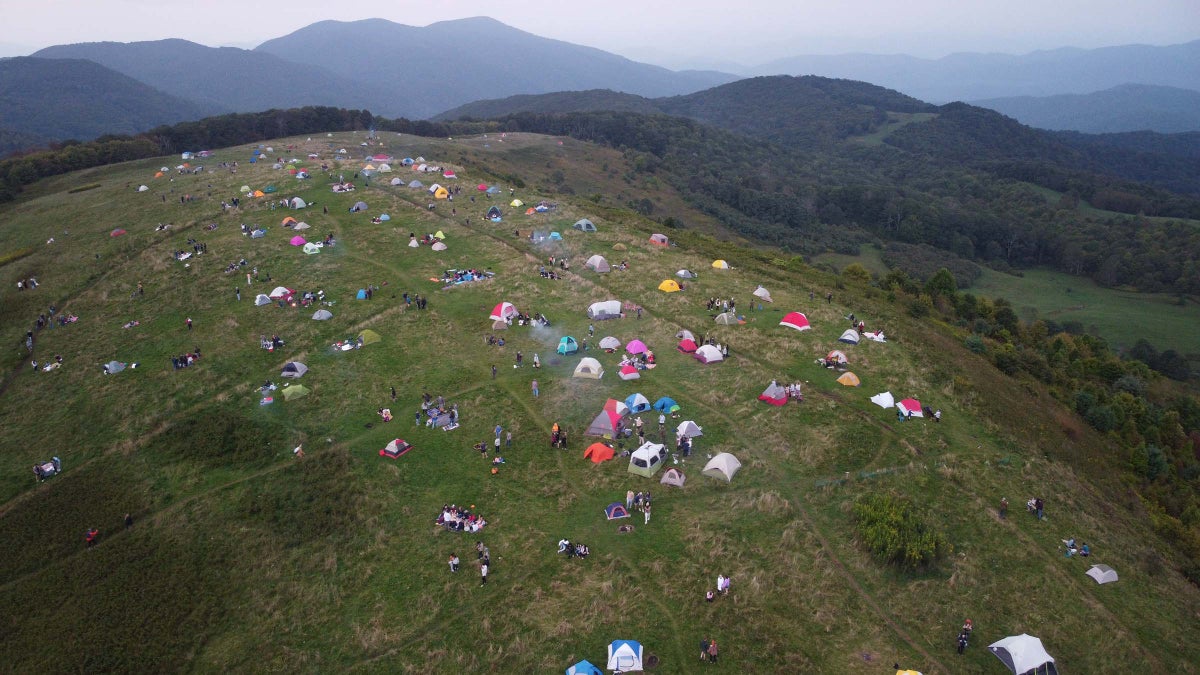Products You May Like
Get full access to Outside Learn, our online education hub featuring in-depth fitness, nutrition, and adventure courses and more than 2,000 instructional videos when you sign up for Outside+
Sign up for Outside+ today.
Officials are considering extending a two-year ban on camping, making fires, flying drones, and lighting fireworks on Max Patch, an iconic overlook along the Appalachian Trail.
The grassy bald features 360-degree views of the surrounding mountains, making it a popular destination for dayhikers and thru-hikers alike. But its growing popularity has contributed to higher levels of fecal matter in the soil, dozens of firepits, litter, and a number of additional calamities. Matters reached a head in September 2020, when a visitor shot an aerial photograph showing dozens of tents sprawled across the peak. After the photograph went viral, the Forest Service announced a two-year closure, which was set to stay in place until June 30, 2023. But the Carolina Mountain Club (CMC), the Appalachian Trail Conservancy, and USFS met last week to evaluate its future while celebrating the destination’s environmental progress.
The CMC, which helps to route and maintain a significant portion of North Carolina’s Appalachian Trail, began to notice the severe impacts of overuse on Max Patch in 2017. The organization began meeting with the Appalachian Trail Conservancy and Jennifer Barnhart, a U.S. Forest Service Ranger to discuss potential remedies. In 2018, the USFS established a visitor management use to protect and maintain Max Patch. Among other actions, the partners established a team of volunteers to educate visitors on area’s restrictions and collect data on use.
A year into the initial ban, the area is beginning to recover. Prior to the implementation of restrictions, some 70 fire rings dotted the peak. Today, only 9 remain. Social trails which covered 22,000 square feet now cover only 9,000. At first glance, these numbers seem to indicate that the USFS’s order is working to support the ecological health and wellness of Max Patch, and removing those restrictions could negate the progress that has been made.
Deputy Supervisor James Melonas, of the U.S. Forest Service is expected to make a recommendation on the ban’s extension in the near future.
